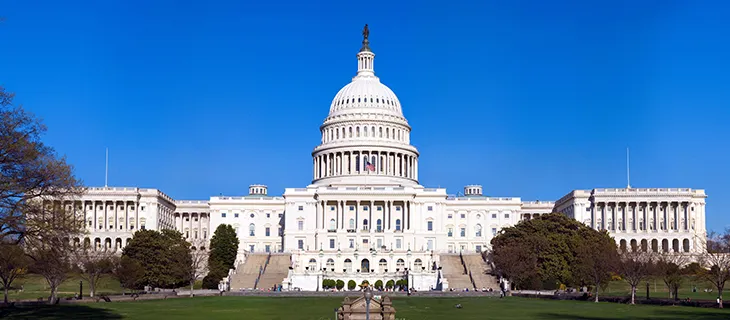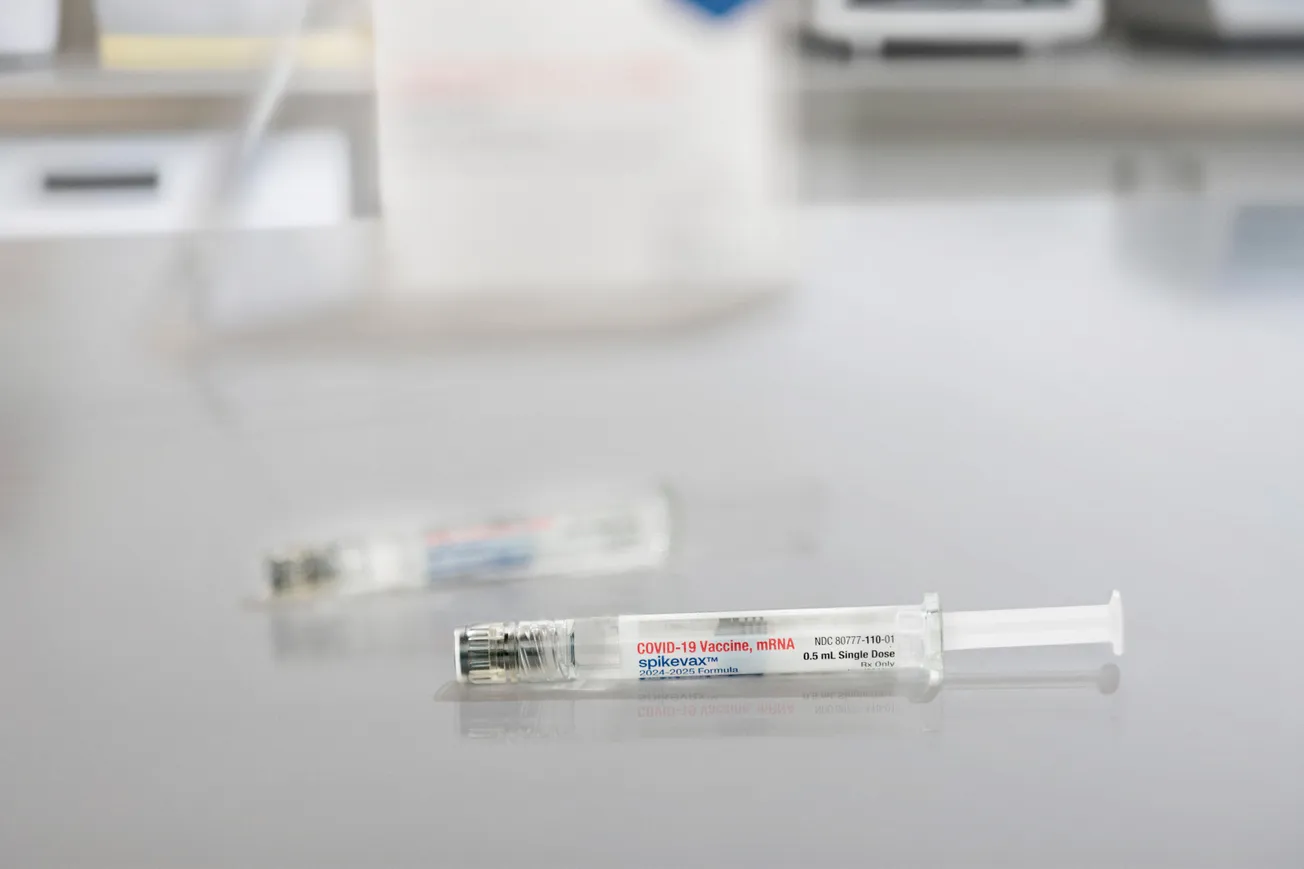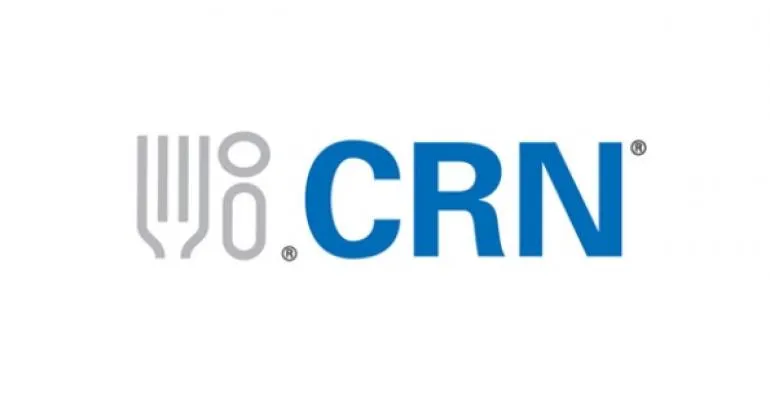Editor’s note: This was part of CDR’s 2019 Pharmacy Outlook in the January 7 issue.
In health policy, 2018 and 2019 could look a lot alike.

Steve Anderson
In October, the National Association of Chain Drug Stores was invited to the White House for two bill-signing ceremonies in as many weeks: one for legislation related to drug pricing issues, and one for legislation related to opioid abuse prevention.
These issues — and lingering questions about enhancing the accessibility and affordability of health care broadly — figure to remain prominent into January and beyond. That is when the 116th Congress convenes, when the Trump administration crosses the halfway point of its first term, and when governors and state legislators pursue their agendas throughout the nation.
NACDS is well positioned to continue to engage significantly in these issues. In fact, they align perfectly with NACDS’ priorities, as articulated in the NACDS Access Agenda. The Access Agenda says this: Just as pharmacies provide access to better health care every day, they also are available to provide access to health policy solutions. The Access Agenda includes the proactive offense of enhancing access to newer services; the tough defense of preserving patients’ access to care; and working as partners for stronger and safer communities — including on opioid issues.
NACDS is committed to waging aggressive campaigns on our priority issues to advance and defend pharmacies’ role as the face of neighborhood health care, which benefits patients and consumers far and wide.
Opioid abuse prevention
The 116th Congress could consider additional legislative approaches to help address the opioid abuse epidemic. At the very least, a major focus for the Trump administration, for Congress and for all stakeholders will be assuring the effective and appropriate implementation of the SUPPORT for Patients and Communities Act (H.R. 6), which was enacted on October 24, 2018. In several areas, the legislation calls for the engagement of stakeholders in the development of the regulations that will implement H.R. 6. NACDS will remain completely engaged.
H.R. 6 is consistent with the four public policy recommendations for opioid abuse prevention that NACDS put forward, based on pharmacists’ recommendations from the front lines of care. We need to assure that remains the case when the regulations to implement the law are written.
NACDS’ recommendations involve electronic prescribing, drug disposal, prescription drug monitoring programs and initial-fill limits for acute pain. These recommendations complement long-standing and ongoing pharmacy initiatives to prevent opioid abuse, including compliance programs, pioneering e-prescribing, drug disposal, patient education, security initiatives, fostering naloxone access, stopping illegal online drug sellers and rogue clinics, and more.
The legislation is particularly effective in that it includes the provisions of the NACDS-backed Every Prescription Conveyed Securely Act — which requires electronic prescribing for Schedule II through V controlled substances prescriptions covered under Medicare Part D — with limited exceptions to ensure patient access. In addition, and of importance, state legislatures and executive branches are taking action to advance electronic prescribing as well. Seven states have enacted some sort of mandatory electronic prescribing legislation this year, bringing the total number of states with some sort of NACDS-backed provision to 13. We anticipate continued action in other states as well.
NACDS remains focused on collaborating with governors, state legislators, state attorneys general and other state-level decision makers to continue to serve as part of the solution to this issue.
It is important to emphasize that — in addition to the public policy recommendations — NACDS members are doing tremendous work to help address the opioid abuse epidemic. NACDS’ Chain Pharmacy Community Engagement Report, released in 2018, describes NACDS members’ innovative and determined initiatives. In fact, opioid abuse prevention is one of the top three focus areas reported by members.
Drug pricing policy issues
The Trump administration has indicated that reducing patients’ out-of-pocket prescription drug prices remains a priority. Even before the election and the transition to Democratic control of the House of Representatives, President Trump suggested that this is an issue on which he and Democrats can work together. Since the election, there are indications that changes in key committee chairmanships could elevate this issue even further.
Within this context, NACDS continues to make the case for crucial issues such as direct and indirect remuneration (DIR) fee reform; more extensive issues related to pharmacy reimbursement; and the establishment of an appropriate system of pharmacy quality measures. DIR fee reform is absolutely vital for pharmacy patient care.
NACDS, the National Community Pharmacists Association, and the National Association of Specialty Pharmacy have provided recommendations to the Department of Health and Human Services on this issue. Even as Congress passed, and Trump signed, legislation to prohibit “gag clauses” that prevent pharmacists from advising patients when they can save money by paying cash out of pocket instead of using their insurance benefits, NACDS emphasized DIR fee reform as an essential step for consumers and for pharmacies alike.
NACDS notes that eight in 10 voters say pharmacists are credible sources of information about how to save money on prescription drugs — the highest rating of all health care professionals tested in a Morning Consult survey commissioned by NACDS. NACDS is committed to leveraging this position to make the case for needed reforms.
Advancing scope of business
Advancing NACDS chain members’ “scope of business” is another way to refer to advancing pharmacies’ role as the “face of neighborhood health care.” Scope of business includes expanding pharmacists’ scope of practice and attaining provider status for pharmacists. The term also includes expanding the broader range of sustainable services that chain pharmacies are empowered to perform, often through utilization of pharmacy technicians, physician assistants, nurse practitioners, dietitians, opticians and others. This can be accomplished through an in-store clinic, a partnership with a health system, or another arrangement.
In assessing the potential for further progress in these areas in 2019 and beyond, it is helpful to view pharmacy’s progress. In 2018, NACDS and our state allies worked to expand the scope of practice for pharmacists, and to expand opportunities to utilize pharmacy technicians. Examples include expanding pharmacists’ immunization authority, facilitating medication synchronization, enhancing the ability of pharmacists to furnish medications, permitting pharmacists to perform CLIA-waived tests under certain conditions, improving or eliminating the pharmacy technician-to-pharmacist ratio, and expanding pharmacy technician duties.
There remains a strong sense that the outlook for pharmacy’s progress may be tied to the lessons learned in public health. That has been the case regarding vaccines. Based in large part on pharmacy’s performance during influenza outbreaks, the public health community realized the wisdom of allowing pharmacists to do more. Many people find it surprising that it was not until 2009 that pharmacists were allowed to administer the flu shot in all 50 states. Now, since 2015, pharmacists have been allowed to administer at least three adult vaccines in all 50 states. Progress continues.
NACDS and our allies continue to line up the key ingredients for continued advancement of pharmacy’s scope of business. We continue to raise awareness of the education, the accessibility and the trustworthiness of pharmacists. We continue to develop the public health alliances and the authoritative literature that support an ever-enhanced role for pharmacy. These are some of the keys to converting the public’s trust of pharmacists into greater traction for public health.
With these issues and much more on the horizon, NACDS is committed to a highly proactive approach to shaping and advancing the agenda. From NACDS’ perspective, it is not sufficient to work the issues; rather, NACDS wages campaigns on the issues. NACDS’ campaigns take into consideration the dynamics within the public policy and political arenas, and apply modern advocacy tools that can help to bring about truly pro-patient and pro-pharmacy outcomes.
In a year in which the salient issues may prove to be remarkably similar to the issues of the prior year, it is NACDS’ goal to build on success for NACDS members and for the consumers and patients they serve.
Steve Anderson is the president and chief executive officer at the National Association of Chain Drug Stores.









